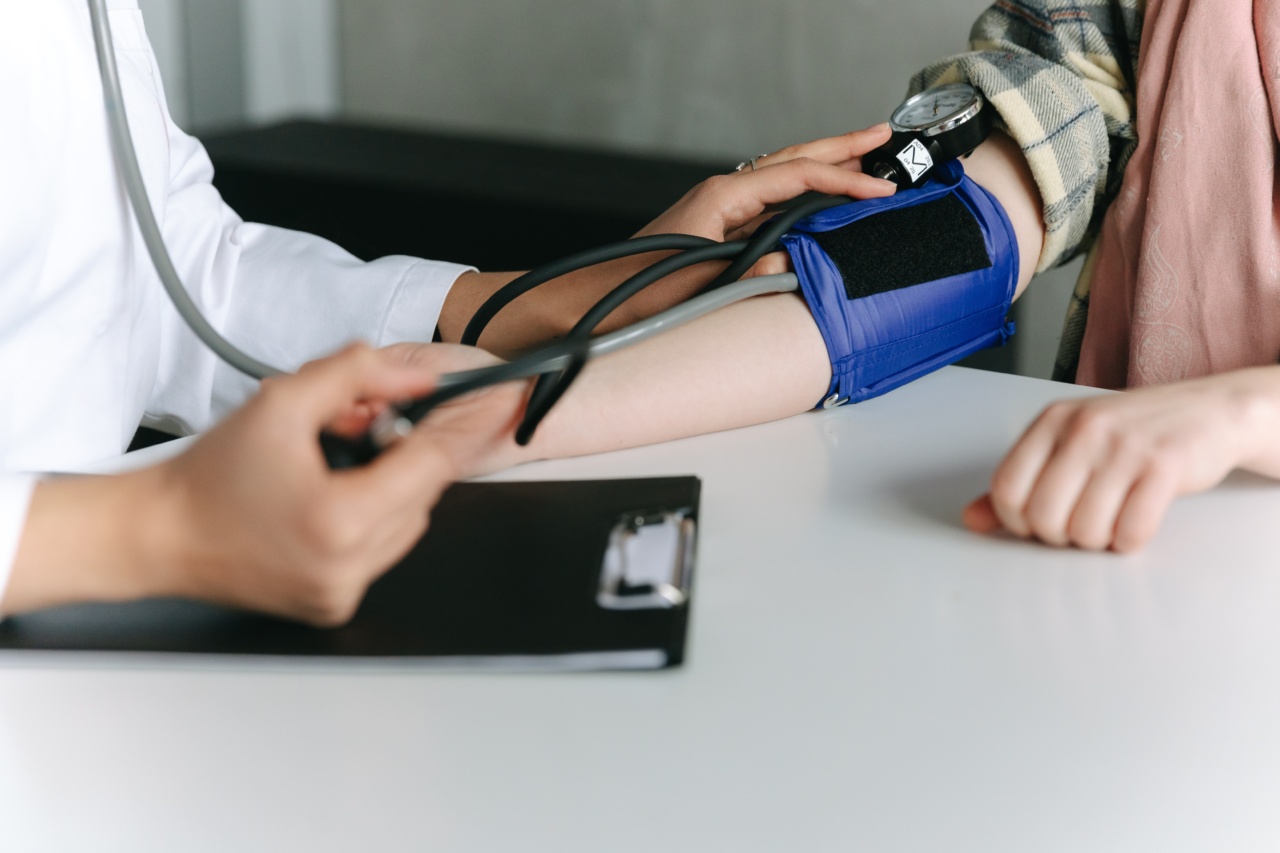Hypertension, commonly known as high blood pressure, is a chronic medical condition that affects millions of people worldwide.
While medication is often prescribed to manage blood pressure levels, there are natural methods that can help effectively lower hypertension without relying on pharmaceuticals. In this article, we will explore five proven methods to beat hypertension without medication and improve your overall health.
1. Adopt a Healthy Diet
A balanced and nutritious diet plays a crucial role in managing and preventing hypertension. Incorporate foods that are low in sodium and high in potassium, such as fruits, vegetables, whole grains, and lean proteins.
Avoid processed and packaged foods that are typically high in sodium, as excessive salt intake can contribute to high blood pressure.
Additionally, consider following the Dietary Approaches to Stop Hypertension (DASH) eating plan, which emphasizes consuming fruits, vegetables, low-fat dairy products, nuts, and seeds while limiting red meat, sugary beverages, and refined grains.
2. Engage in Regular Exercise
Regular physical activity is essential for maintaining optimal blood pressure levels. Engage in activities that raise your heart rate and make you breathe harder, such as brisk walking, jogging, swimming, or cycling.
Aim for at least 30 minutes of moderate-intensity exercise most days of the week.
Exercise helps lower blood pressure by strengthening the heart and improving blood circulation. It also helps maintain a healthy weight, which is crucial for hypertension management.
3. Manage Stress
Chronic stress can significantly contribute to hypertension. Unmanaged stress can increase blood pressure levels and have detrimental effects on overall health. Therefore, it is important to find effective ways to manage stress and promote relaxation.
Consider incorporating stress-management techniques into your daily routine, such as meditation, deep breathing exercises, yoga, or practicing mindfulness.
These practices can help regulate your body’s stress response and promote a sense of calmness.
4. Prioritize Quality Sleep
A good night’s sleep is vital for overall health and blood pressure management. Lack of sleep or poor-quality sleep can lead to increased blood pressure levels.
Aim for seven to eight hours of uninterrupted sleep each night for optimal health benefits.
Establish a bedtime routine that promotes relaxation and creates a sleep-friendly environment.
Avoid electronic devices before bedtime, maintain a consistent sleep schedule, and create a comfortable sleep environment by controlling light, noise, and temperature.
5. Incorporate Relaxation Techniques
Beyond stress management practices, other relaxation techniques can help lower blood pressure and promote overall well-being. Consider exploring activities such as tai chi, progressive muscle relaxation, or guided imagery.
Tai chi is a gentle martial art that combines slow movements, deep breathing, and meditation. It has been found to reduce blood pressure and promote relaxation.
Progressive muscle relaxation involves tensing and relaxing muscle groups to promote physical and mental relaxation. Guided imagery utilizes visualization techniques to create a calming and peaceful mental state.
The Bottom Line
While medication is commonly prescribed to manage hypertension, it is possible to lower blood pressure without relying on pharmaceuticals.
By adopting a healthy diet, engaging in regular exercise, managing stress, prioritizing quality sleep, and incorporating relaxation techniques, you can effectively beat hypertension and improve your overall health. Remember to consult with your healthcare provider before making any significant lifestyle changes or discontinuing medication.































